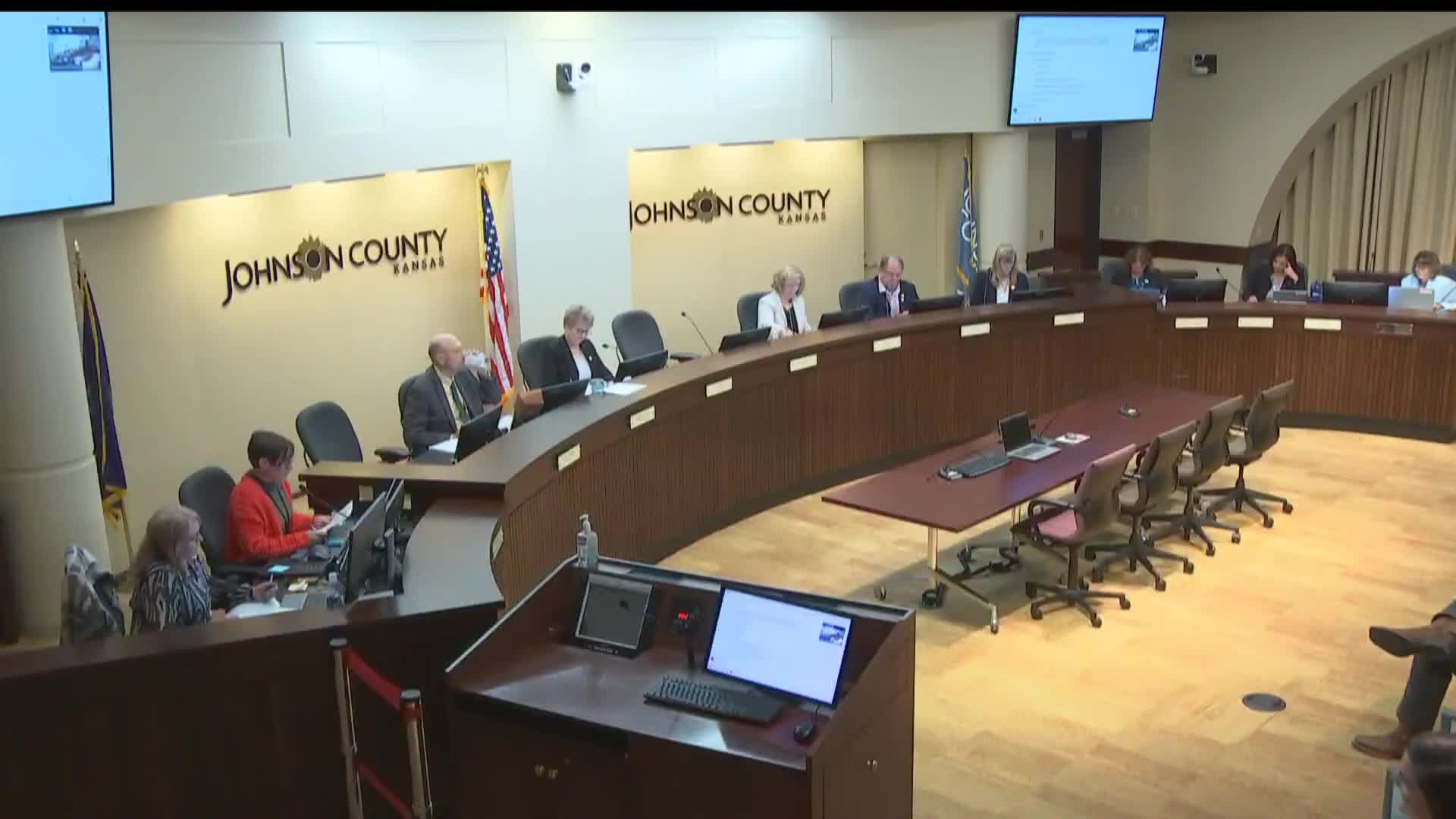Board approves 2026 Public Housing Authority plan; commissioners debate landlord tax‑status change
Get AI-powered insights, summaries, and transcripts
Subscribe
Summary
The Johnson County Board of County Commissioners approved the housing authority’s 2026 public housing authority (PHA) plan after a public hearing and extended discussion. Staff described program expansions and changes to waitlist management; one commissioner voted no over removal of a landlord tax‑compliance check.
The Johnson County Board of County Commissioners approved the county’s 2026 Public Housing Authority (PHA) plan for submission to the U.S. Department of Housing and Urban Development after a public hearing and extended discussion Friday. The board voted 4–1 to adopt the plan.
The plan, presented by Heather McNeve, housing services director, updates the county’s administrative policies for the Housing Choice Voucher (Section 8) program and describes program goals and recent expansions. McNeve told the board the PHA plan is an annual administrative requirement and an update to the five‑year plan covering 2025–2029.
"It is specific to the housing choice voucher or section 8 housing program," McNeve said, explaining the program’s tenant‑based rental assistance model. She outlined four major goals from the five‑year plan: prioritize extremely low income households (75% target), reach high‑performer status with HUD (already achieved for 2024), expand affordable units for voucher holders and serve more people experiencing homelessness.
Key program details and changes - New and expanded voucher streams: the county is operating a Foster Youth to Independence (FYI) voucher program (started March 2024) and reported it has 19 FYI vouchers in use. McNeve said the county also submitted a registration of interest for HUD‑VASH vouchers for homeless veterans and requested 30 vouchers through the U.S. Department of Veterans Affairs partnership. - Landlord incentive program: McNeve reported the county’s landlord incentive payments helped house 51 people so far this year and recruited 22 new landlords. The incentive was expanded to cover all federally funded housing programs and bonus amounts were increased for young adults in the FYI stream (to three times the monthly rent) to address lease‑up barriers. - Waitlist and emergency voucher transition: McNeve said the Emergency Housing Voucher (EHV) program, created during COVID, will be funded only through 2026 instead of 2030 as previously expected. "We were not able to open our waitlist this year," she said, adding the housing authority will phase EHV recipients into the regular voucher inventory without additional HUD vouchers and therefore must serve existing households before opening the waitlist. - Moving‑on strategy: the plan includes a strategy to move residents from permanent supportive housing vouchers into Section 8 when appropriate, freeing intensive supportive slots for higher‑acuity households; staff estimate about 2–3 households per year through Johnson County Mental Health.
Public comment and board discussion During the public hearing, Rita Carr, director of community planning at United Community Services in Overland Park, praised the changes and urged continued coordination: "These changes really will make a difference for the list of people that in any given year are looking for housing from homelessness." Brian Perkins, a resident who identified as homeless, urged continued urgency: "We need to really put the hammer down, and we need to come together hand in hand."
Commissioners commended staff for program growth, especially the FYI vouchers and landlord incentives. Commissioner Brewer described the FYI expansion as an important development for young adults aging out of foster care. Commissioners asked staff whether HUD would provide additional units when EHV funding ends; McNeve said HUD is not providing additional vouchers and the county will "absorb them into our 1,485 vouchers." She noted about 500 households remain on the existing waitlist.
A point of contention focused on a policy change removing a county‑level requirement to withhold landlord incentive payments if owners were delinquent on local property taxes. Commissioner Ashcraft said removing the tax‑status check removes leverage to ensure landlords meet public obligations; he said he planned to vote against the plan because of that change. McNeve and other commissioners argued the county’s practice created administrative overlap with Treasury/Taxation, risked displacing tenants by withholding rent payments, and was not a federal requirement. Commissioner Hanslick and others said enforcement of property tax delinquency is the role of the county Treasury/Taxation office and that the change reduces administrative burden and potential harm to tenants.
Vote and next steps Commissioner Myers moved approval of the 2026 PHA plan; Commissioner Brewer seconded. Roll call was: Commissioner Fast — aye; Commissioner Myers — aye; Commissioner Brewer — aye; Commissioner Ashcraft — no; Vice Chair Janae Hanslick — aye. The motion passed 4–1.
The plan will be submitted to HUD as required. Staff said they will continue landlord recruitment, pursue additional voucher competitions (including the HUD‑VASH registration), and manage the waitlist conservatively pending final federal budget certainty.
Why it matters: The PHA plan directs local administration of federally funded rental assistance that serves homeless households, veterans, youth aging out of foster care and other low‑income residents. Changes to waitlist rules and landlord incentives affect how quickly households can access housing and how the county uses limited voucher resources.
Quotes: "It is specific to the housing choice voucher or section 8 housing program," — Heather McNeve, Housing Services Director. "We were not able to open our waitlist this year," — Heather McNeve. "These changes really will make a difference for the list of people...looking for housing from homelessness," — Rita Carr, United Community Services.
